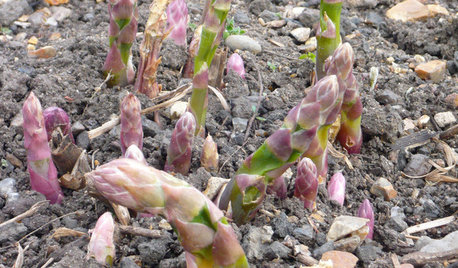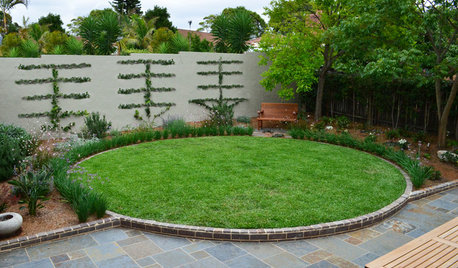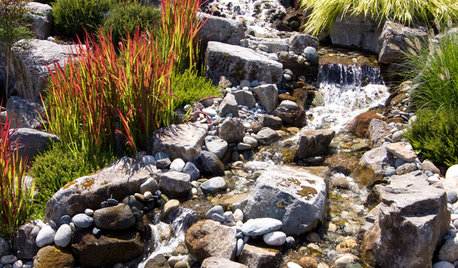Old Asparagus bed full of grass, Till, Mulch?
wertach zone 7-B SC
13 years ago
Related Stories

COOL-SEASON CROPSCool-Season Vegetables: How to Grow Asparagus
Patience pays off with this harbinger of spring that lasts for decades in the garden
Full Story
GARDENING GUIDESNew Ways to Think About All That Mulch in the Garden
Before you go making a mountain out of a mulch hill, learn the facts about what your plants and soil really want
Full Story
GARDENING GUIDESHow to Pick a Mulch — and Why Your Soil Wants It
There's more to topdressing than shredded wood. Learn about mulch types, costs and design considerations here
Full Story
GARDENING GUIDESSmall Gem Lawns: More Impact From Less Grass
Instead of letting the lawn sprawl, make it a shapely design element in your yard. You’ll reap benefits both practical and aesthetic
Full Story
GRASSES10 Ways to Use Ornamental Grasses in the Landscape
These low-maintenance plants can add beauty, texture and privacy to any size garden
Full Story
LANDSCAPE DESIGNIs It Time to Consider Fake Grass?
With more realistic-looking options than ever, synthetic turf can be a boon. Find the benefits and an installation how-to here
Full Story
FOLIAGEGreat Design Plant: Foxtail Fern
Not actually a fern, this vivid member of the asparagus family has a distinctive appearance to awaken a garden year-round
Full Story
GARDENING GUIDESGarden Myths to Debunk as You Dig This Fall and Rest Over Winter
Termites hate wood mulch, don’t amend soil for trees, avoid gravel in planters — and more nuggets of garden wisdom
Full Story
LANDSCAPE DESIGNDitch the Ordinary Ditch: Create a Realistic Dry Creek Bed
Here’s how to turn your water runoff system into an eye-catching accent for your landscape
Full Story
LANDSCAPE DESIGNYour Mini Guide to Great Garden Edges
Get the scoop on trenches to the skinny on bender board, to help keep your garden beds as tidy as you like
Full StorySponsored
Your Custom Bath Designers & Remodelers in Columbus I 10X Best Houzz
More Discussions







nchomemaker
Dan _Staley (5b Sunset 2B AHS 7)
Related Professionals
Fort Lee Landscape Architects & Landscape Designers · Hyattsville Landscape Architects & Landscape Designers · Montgomeryville Landscape Architects & Landscape Designers · Cliffside Park Landscape Contractors · Fruit Heights Landscape Contractors · Hawthorne Landscape Contractors · Los Banos Landscape Contractors · North Haven Landscape Contractors · Peachtree City Landscape Contractors · Plainview Landscape Contractors · Pompton Lakes Landscape Contractors · Westchester Landscape Contractors · Wethersfield Landscape Contractors · Weymouth Landscape Contractors · Brenham Driveway Installation & Maintenancejollyrd
biscgolf
tcstoehr
gardenlen
ribsyhuggins
girlgroupgirl
ltilton
Dan _Staley (5b Sunset 2B AHS 7)
glib
dott22
soilent_green
alabamanicole
jolj
leatherneckjoe
Macmex
iammarcus
chuck60